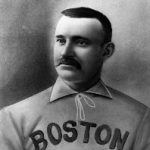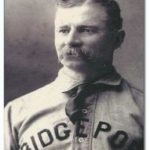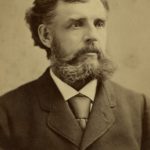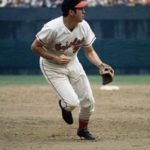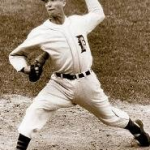Major League Baseball Season Recap: 1881
League Champion: Chicago White Stockings
The National League seemed to be in great shape entering 1881 after another fairly uneventful off-season; other than the expulsion of Cincinnati and their subsequent replacement with Detroit, the structure of the circuit was unchanged.
The customary annual rule changes were important. The maximums were lowered to seven balls and three strikes. Batting order had to be set prior to the game (previously, the manager could determine the order during the first pass through the lineup. Cap Anson was purportedly a practitioner of this strategy, choosing to bat himself in the first inning should there be runners on base but holding himself back if there were not). Most importantly, though, the pitching box was moved back five feet, from forty-five to fifty.
The pennant race was another breeze for Chicago. Although they declined by eleven games, they still boasted a .667 W% and a nine game margin on second place Providence. The White Stockings went 13-6 in April to take a 1 1/2 game lead on the Grays; after a 12-4 June, their lead was 4 1/2 over Buffalo and would increase from there, with Providence besting the Bisons by 1 1/2 for second.
On June 25, George Gore of Chicago stole seven bases in a game against Providence. On September 10, Roger Connor of Troy belted a two-out, walkoff grand slam in the bottom of the ninth against Worcester to pull the game out 8-7. This was the first “ultimate grand slam” (down three with two outs) in NL history.
On September 29, the league blacklisted ten players for “confirmed dissipation and general insubordination”. They were Lew Brown (Providence), Ed Caskin (Troy), Bill Crowley (Boston), Buttercup Dickerson (Worcester), Mike Dorgan (Worcester), John Fox (Boston), Emil Gross (Providence), Sadie Houck (Detroit), The Only Nolan (Cleveland), and Lip Pike (Worcester). This wound up marking the end of the major league careers of exactly zero of these men.
The next day, a new standard player contract was approved. It enabled fines for any conduct considered “detrimental to the team”; it also provided no salary protection for injuries or coverage for medical treatment. With the strong-arm tactics against players (new contracts, blacklisting, and the reserve clause), the NL was engendering a fair degree of anti-management sentiment among its players. This would help set the stage for the tumultuous events of the next few years.
One of those events were efforts to establish a new challenger to the NL, one that would address the lack of league teams in major cities like New York, Philadelphia, Cincinnati, and St. Louis.
While all eight NL franchises returned for 1882, the baseball scene they would encounter in 1882 was different than any they had seen before. Their leader would be dead and their strongest rival would be in business.
Events

